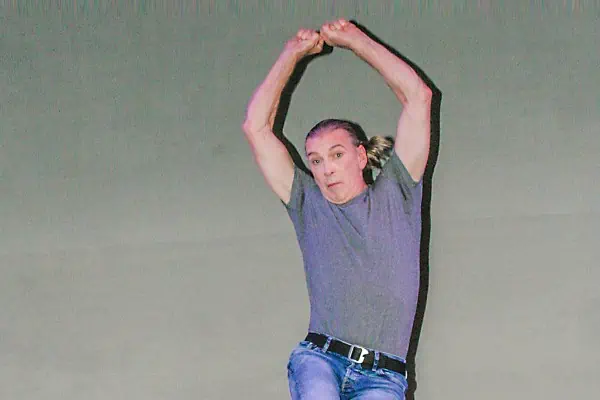When you ask Eliza Gilkyson about her early musical influences, the first name she mentions is Joan Baez.
So when Baez included two of Gilkyson’s songs on her 2008 album, Day After Tomorrow, it was a special occasion.
“That was just stunning,” Gilkyson says from her home in Austin, Texas.
As a singer-songwriter who recorded her first album in 1969 while still in her teens, Gilykson is used to other people covering her tunes.
“I’m always flattered when that happens,” she says. “It’s very exciting.”
In fact, her 2010 collaboration with John Gorka and Lucy Kaplansky called Red Horse features the three musicians performing each other’s material, including Kaplansky’s cover of Gilkyson’s song, “Sanctuary”.
“Now when I hear her do that song, I feel like it’s her song. It’s stunning to hear someone step into your material and make it their own.”
Gilkyson’s appearance at the Yukon Arts Centre next week marks her second visit to Whitehorse in five years. On her last visit, she hiked the river trails around the city’s perimeter.
“I was really taken by the deep emptiness of it,” she says.
A prolific writer with 18 albums to her credit so far and another due any day now, the author of such memorable tunes as “Calling All Angels” and “Beautiful World” comes by her musical chops honestly.
Her late father, Terry, was a noted singer-songwriter whose credits include the Dean Martin-recorded classic, “Memories Are Made of This,” which he wrote with his two colleagues in the Easy Riders.
Gilkyson was first drawn to folk music in the 1960s by the likes of Baez, Judy Collins, Joni Mitchell, Bob Dylan and Phil Ochs, before dabbling with what she calls the “psychedelic folk-rock” of groups such as Buffalo Springfield.
“I think I went on the same trip as a lot of people of my generation, but I cut my teeth on folk music, so I think that’s really my deepest roots.”
Gilkyson says what she loved most about folk music then was a sense that it was communal.
“It wasn’t as much about posturing yourself as a star, it was more about being part of a union, and part of a community. I always loved that.”
More than four decades later, Gilkyson’s work still contains trenchant social and political themes, as in her not-so-thinly disguised critique of George W. Bush, “Man of God”.
That political awareness is plainly evident in the blunt statement that “people round here don’t know what it means / to suffer at the hands of our American dreams / they turn their backs on the grisly scenes / traced to the privileged sons” contained in her 2008 song, “The Great Correction”.
Although she remains committed to the genre, Gilkyson says folk music no longer holds a monopoly on social statement.
“There’s so much great rock music that’s political, so in some ways I think the baton has been passed out into the greater community. I don’t think folk music is the only place anymore.”
Even hip-hop, in spite of sometimes being a “dumping ground for sexist, patriarchal, unethical and just plain stupid discourse,” can also be a great forum for radical thought, she believes.
“I remember when we were all railing about the Bush regime down here, and there wasn’t really very much music that was taking that chance, and here was Eminem just really talking about the empire and the patriarchy.
“I was so relieved that someone was picking it up, because the folk musicians were strangely quiet.”
While she doesn’t shy away from controversial themes, Gilkyson says she is less interested in “hammering people over the head with two-dimensional messages” than she is in creating moving poetry and lyrical music.
“The topics are the things that are on my mind right now, but I really do want things to really sing and be really musical.”
One of those topics that has captured world-wide attention is in her haunting, prayer-like “Requiem”, which she wrote “out of innocence” in response to the devastating Boxing Day tsunami in Indonesia in 2004.
“The compassion just was pouring through me, so I wanted to be more connected to the suffering of others,” she says.
The song later attracted a widespread audience in the U.S. and elsewhere, in the wake of Hurricane Katrina’s assault on New Orleans the following year. It is one of the two Gilkyson songs that Baez included on her 2008 album.
A choral arrangement that Craig Holla Johnson wrote for his choir, Conspirare, in 2007 has since become standard fare for many choral groups.
“It really shows you how universal empathy can be, because it applies across the board. It’s an archetypical place within everyone, I think, the place of compassion. It resonates again and again.
“We’re not seeing less suffering, we’re seeing more of it, so anything that gets us in touch with our own humanness, I think is badly needed and really necessary right now.”
Gilkyson’s “Requiem” is a constant request at her concerts. She expects to sing it at next week’s concert in Whitehorse, in light of the recent tsunami in Japan.
“I would hope that the audience goes to the same place. What we really want to do is feel our connectedness to people who have so much less than we do.”
If she does sing “Requiem”, however, it will be slightly different from the version she originally recorded as a duet with her daughter.
“I’ve had to lower the key, I’m getting so old now,” she admits with a laugh. “It’s a huge range demand on that song. But I love doing it, and I’ve figured out a way to do it in a lower key.”
Eliza Gilkyson will appear at the Yukon Arts Centre on Tuesday, April 19 at 8 pm.




